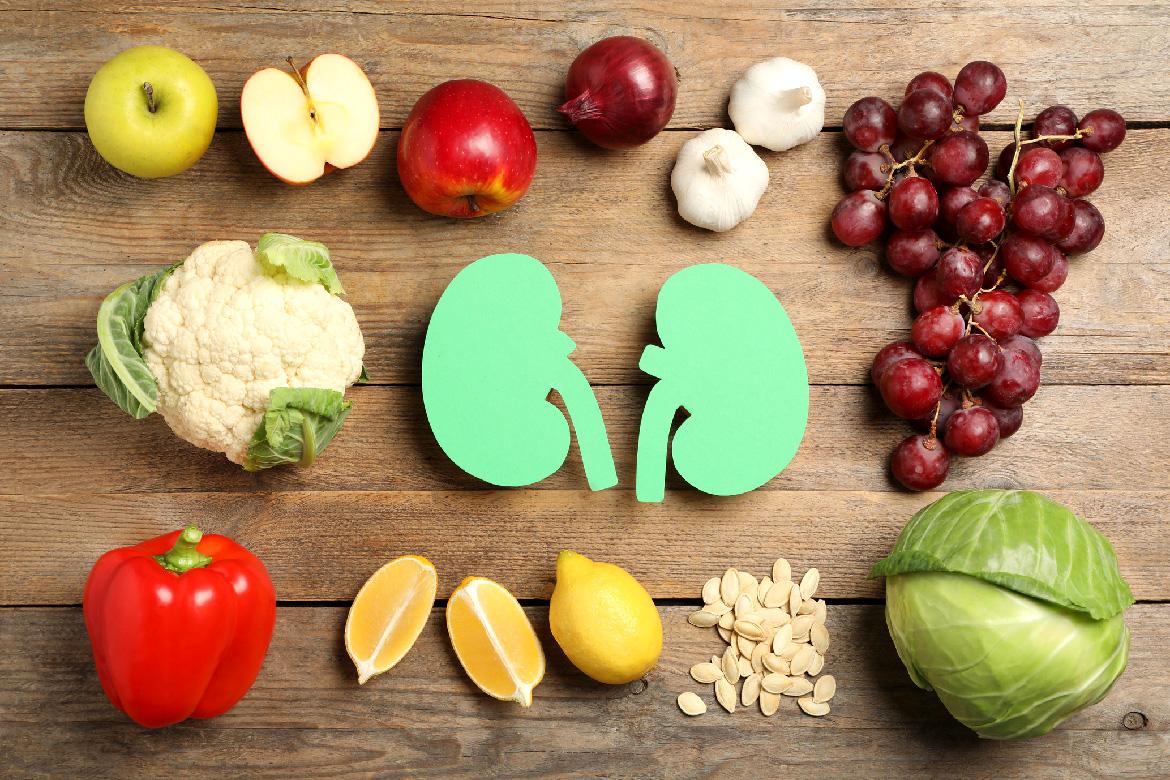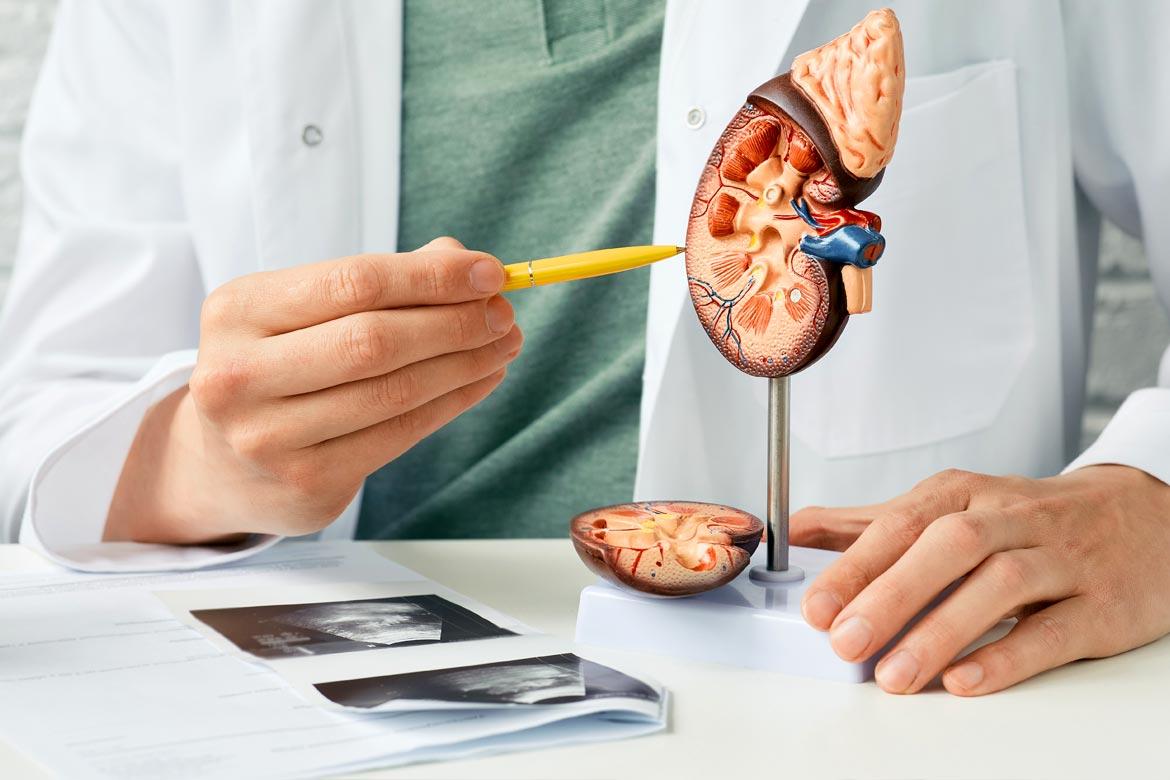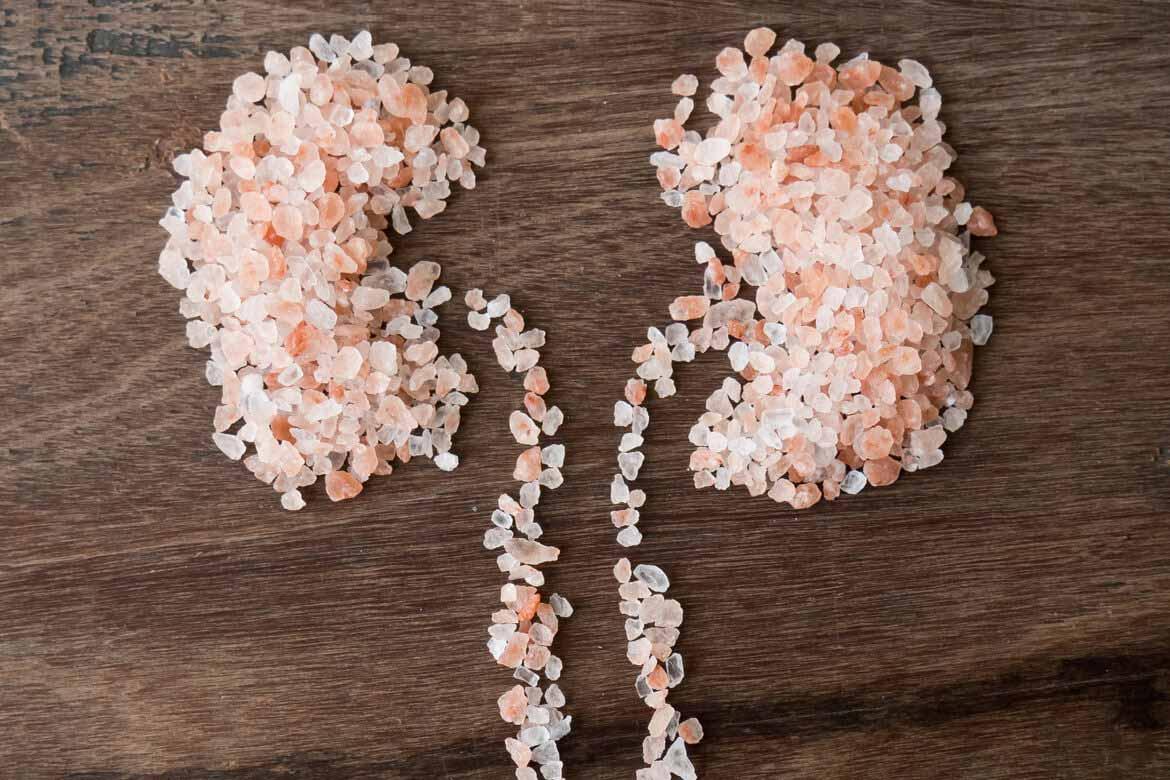
Chronic Kidney Disease
How is chronic kidney disease diagnosed?
Diagnosis of CKD involves several tests, including:
- Blood tests to check for the level of waste products such as creatinine and urea
- Urine tests to detect abnormalities such as protein, blood, and signs of infection
- Imaging tests like ultrasound or CT scans to assess the kidney’s structure and size
- Biopsy of kidney tissue to identify the specific type of kidney disease
How is chronic kidney disease treated?
Treatment of CKD focuses on slowing the progression of the kidney damage, usually by controlling the underlying cause. This can include:
- Blood pressure medications, such as ACE inhibitors or angiotensin II receptor blockers
- Medications to control blood sugar in diabetic patients
- Special diets to limit protein, potassium, and phosphorus intake
- Treating anaemia with supplements like iron or erythropoietin
- Dialysis or kidney transplantation in cases where kidney function has deteriorated significantly
Chronic kidney disease is a significant health concern that requires early diagnosis and careful management to prevent progression and complications. Regular check-ups and adherence to treatment plans are crucial for those diagnosed with or at risk of developing CKD.
This coverage checker is brought to you by Health Insured, an online resource that helps you understand your health coverage in Singapore.
This page has been reviewed by our medical content reviewers.
Need help?
For enquiries, please call
+65 6250 0000 (Orchard) or +65 6898 6898 (Novena)
For appointment bookings, please WhatsApp
+65 8111 7777 (Orchard) or +65 8111 5777 (Novena)
 Brain & Spine Care
Brain & Spine Care







